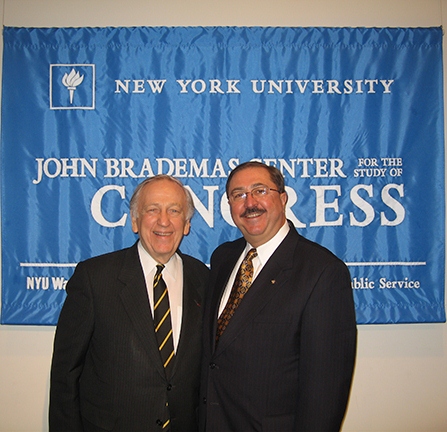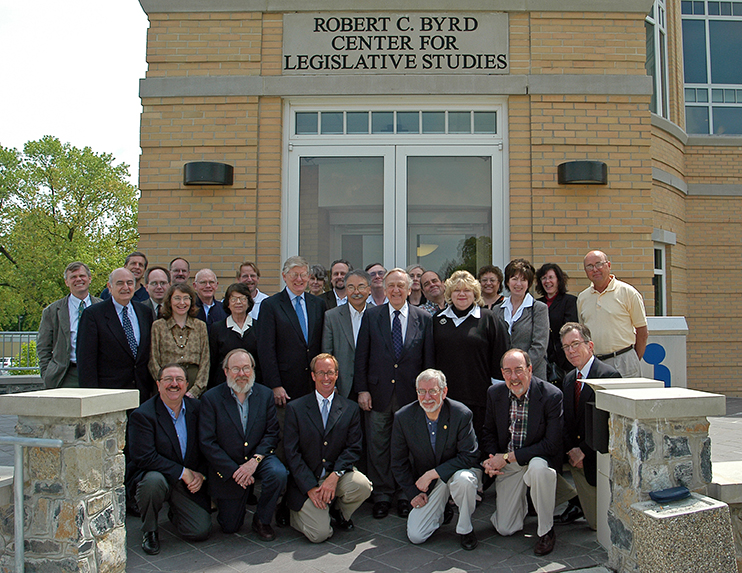|
By Ray Smock
His obituary in the New York Times chronicles the outlines of his career. What I remember are the times I had to be with him and to interact with him on some of our common concerns. John came to the Byrd Center in the spring of 2003, less than a year after we opened our doors. He was part of a group of distinguished historians, political scientists, congressional archivists, educators, and former congressional staff members, who came here to discuss the future of congressional research and to form a new organization the Association of Centers for the Study of Congress. This organization, the ACSC, now has more than 40 institutional members that are concerned with preserving and researching the records of former members of the House and Senate and for providing scholarly venues for conferences on policy issues, the history of Congress, the role of Congress under the Constitution, and a broad inquiry into the meaning of representative democracy in the United States. Two years after the formation of the ACSC, it was my pleasure to take part in the opening conference of the John Brademas Center for the Study of Congress at New York University. Naturally, the Brademas Center has become one of the ACSC’s most dynamic institutional members. The Brademas Center is connected with the Robert F. Wagner Graduate School of Public Service at NYU providing insight and training to future public servants and policy makers on how Congress works and makes decisions.
One of the positive things to come out of that first conference at the Brademas Center was the idea that the private papers of former members of Congress are significant historical resources that deserved to be preserved and used to understand how Congress works. John Brademas said the time had come to put this idea front and center. It took three years for Congress to agree to it. It was passed as H. Con. Res. 307 in 2008. Congress finally recognized the importance of congressional papers and urged members to preserve them, but provided no funds to do so. Still this step continues to inspire those of us who are engaged in the work of preserving and telling the story of Congress. We are, however, a long way from the kind of support Congress gives to the records of the presidency with its system of presidential libraries. Congress, as a co-equal branch of government, deserves equal attention and equal funding. John Brademas understood better than most the importance of an informed citizenry, something Founders like James Madison and Thomas Jefferson thought to be vital to the success of the American Experiment in Government. It has been an uphill battle to keep the idea of the central importance of Congress to American government as something taught in schools and understood by most citizens. Despite all the efforts of historians, political scientists, the journalists who cover Congress, and those who want to understand how policy is shaped, Congress remains an enigma to most Americans. Our continued challenge is to find ways to remedy this and to provide new and insightful information to better understand Congress, especially in these difficult times when Congress is universally condemned as dysfunctional. We need to better understand how things got this way, and how we can again return Congress to its role as the fulcrum of American government, not its whipping boy. When you were lucky enough to have the opportunity to meet and work with the likes of John Brademas as I did on this one important issue, you cannot help but to love and respect the best of what Congress has been and should be again. Comments are closed.
|
Welcome to the Byrd Center Blog! We share content here including research from our archival collections, articles from our director, and information on upcoming events.
Categories
All
Archives
July 2023
|
Our Mission: |
The Byrd Center advances representative democracy by promoting a better understanding of the United States Congress and the Constitution through programs and research that engage citizens.
|
Copyright © Robert C. Byrd Center for Congressional History and Education
|



 RSS Feed
RSS Feed
